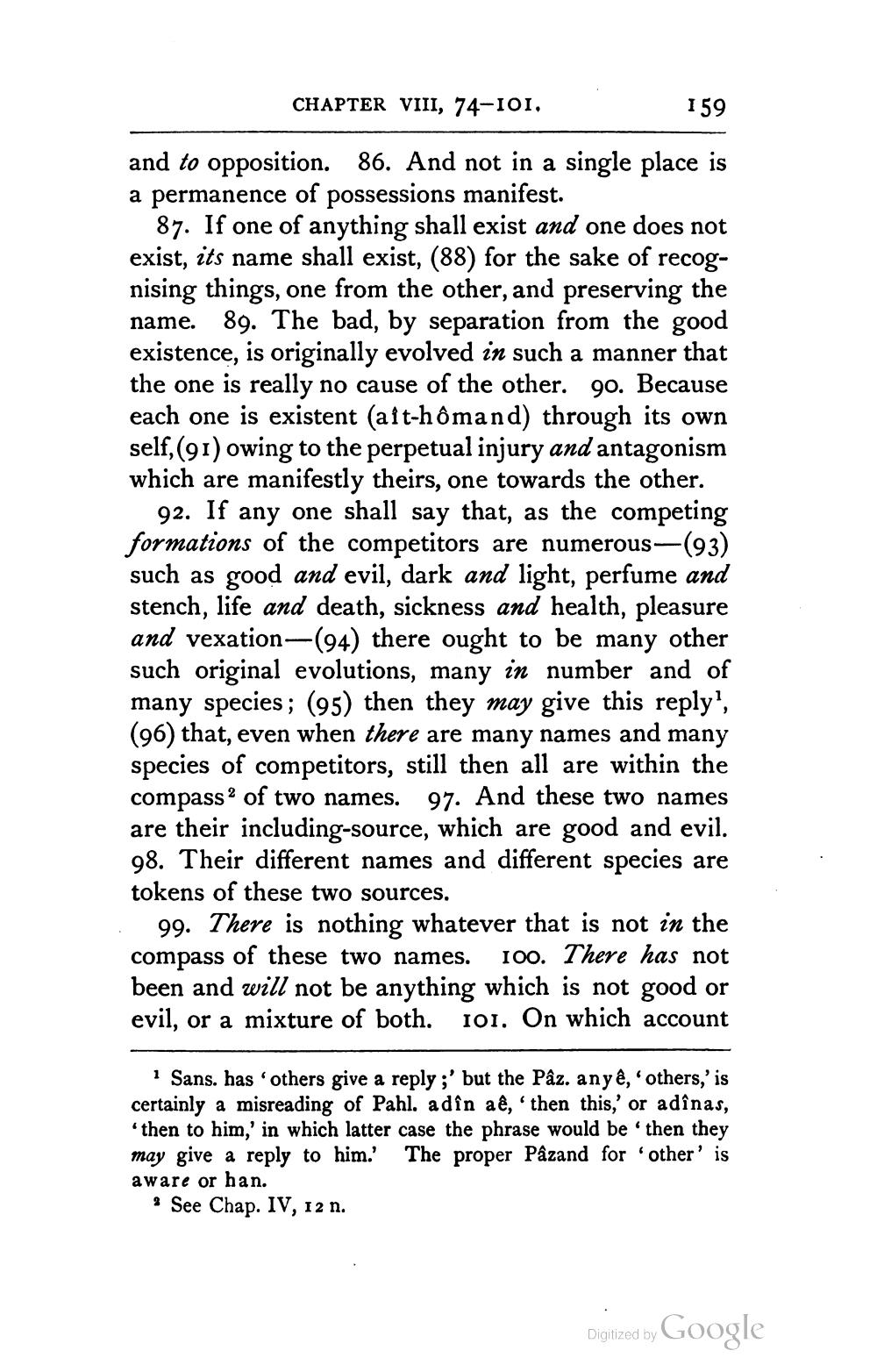________________
CHAPTER VIII, 74-101,
159
and to opposition. 86. And not in a single place is a permanence of possessions manifest.
87. If one of anything shall exist and one does not exist, its name shall exist, (88) for the sake of recognising things, one from the other, and preserving the name. 89. The bad, by separation from the good existence, is originally evolved in such a manner that the one is really no cause of the other. 90. Because each one is existent (ait-hômand) through its own self,(91) owing to the perpetual injury and antagonism which are manifestly theirs, one towards the other.
92. If any one shall say that, as the competing formations of the competitors are numerous—(93) such as good and evil, dark and light, perfume and stench, life and death, sickness and health, pleasure and vexation—(94) there ought to be many other such original evolutions, many in number and of many species; (95) then they may give this reply', (96) that, even when there are many names and many species of competitors, still then all are within the compass? of two names. 97. And these two names are their including-source, which are good and evil. 98. Their different names and different species are tokens of these two sources.
99. There is nothing whatever that is not in the compass of these two names. 100. There has not been and will not be anything which is not good or evil, or a mixture of both. 101. On which account
i Sans. has 'others give a reply;' but the Pâz. anyê, others,' is certainly a misreading of Pahl. adîn aê, then this,' or adînas,
then to him,' in which latter case the phrase would be then they may give a reply to him. The proper Pâzand for other' is aware or han.
? See Chap. IV, 12 n.
Digitized by Google




